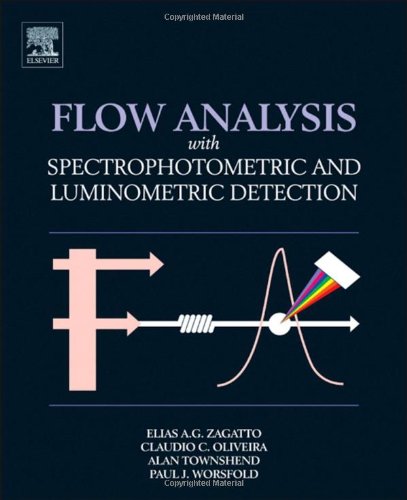

Most ebook files are in PDF format, so you can easily read them using various software such as Foxit Reader or directly on the Google Chrome browser.
Some ebook files are released by publishers in other formats such as .awz, .mobi, .epub, .fb2, etc. You may need to install specific software to read these formats on mobile/PC, such as Calibre.
Please read the tutorial at this link: https://ebookbell.com/faq
We offer FREE conversion to the popular formats you request; however, this may take some time. Therefore, right after payment, please email us, and we will try to provide the service as quickly as possible.
For some exceptional file formats or broken links (if any), please refrain from opening any disputes. Instead, email us first, and we will try to assist within a maximum of 6 hours.
EbookBell Team

5.0
38 reviewsWith the ever increasing number of samples to be assayed in agronomical laboratories and servicing stations, fertilizer and food industries, sugar factories, water treatment plants, biomedical laboratories, drug quality control, and environmental research, the interest for automated chemical analysis has been increasing. In this context, flow analysis is very attractive, as they the flow-based procedures are characterized by enhanced analytical figures of merit. Moreover, the flow analysers do not usually require sophisticated and expensive instrumentation, are amenable to full automation and to miniaturization, and are well suited for in situ analyses. The tendency to carry out traditional methods of analysis in the flow analyser has becoming more pronounced, especially in relation to large-scale routine analyses. The technology of solution handling has become more and more improved, leading to enhanced strategies for chemical assays. Consequently, different modalities of flow analysis (e.g. SFA, FIA, SIA) have been conceived, developed and applied to solve real problems. Most of the flow-based analytical procedures presently in use, however, do not exploit the full potential of flow analysis. The main object of the book is then to provide a scientific basis and to familiarise a wide community of researchers, students, technicians, etc with the uses of flow analysis. Emphasis is given to spectrophotometric and luminometric detection, in relation to agronomical, geological, industrial, pharmaceutical and environmental applications. The book includes historical and theoretical aspects, recent achievements in instrumentation, guidelines for methodology implementation, and applications. It serves also as an applications-oriented text book.